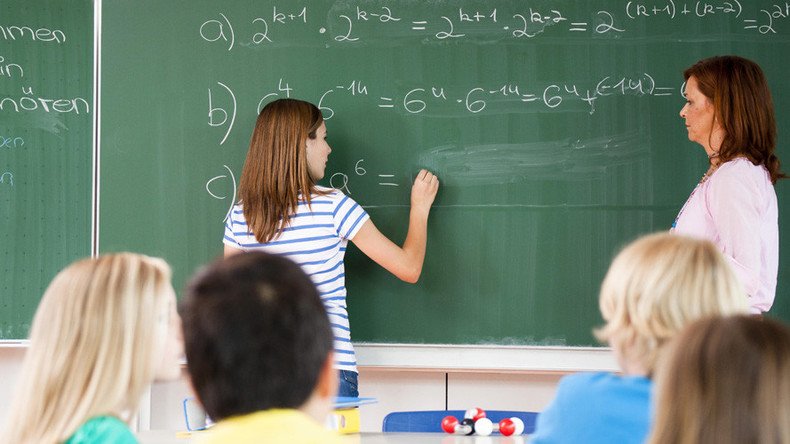Religious students perform worse in math & science – study

Students who opt to enhance their spiritual life may be hindering their academic knowledge, according to a new study which found a negative link between religion and performance in science and mathematics.
The study, jointly conducted by researchers at Leeds Beckett University and the University of Missouri, ranked 82 countries by their ‘religiosity score’ on a scale of zero to 10.
Levels of religiosity were determined using questionnaires carried out in the World Values Survey and the European Social Survey among the adult population.
The most religious countries were found to be Jordan, Yemen, Egypt, Indonesia and Qatar. Meanwhile, the Czech Republic, Japan, Estonia, Sweden and Norway are the most secular.
The research also assessed levels of school performance in mathematics and science, based on scores from children between 14 and 15 years of age.
"Analysis of the data sets allowed conclusions to be drawn about international levels of religiosity, schooling and educational performance, and levels of human development (measures in regard to health, education, and income)," Leeds Beckett University wrote in a press release.
The study looks at databases and performance reports compiled by international organizations like the Organization for Economic Cooperation and Development (OECD) and the International Energy Agency (IEA).
The findings suggest that engaging in religion may lead to a displacement of non-religious activities. In particular, it found that the more time students spend on religious activities, the worse they do in math and science.
“The findings support the idea of a ‘displacement hypothesis’ that when children spent more of their time on religion, they will spend less time on other things," Gijsbert Stoet, a professor of psychology at Leeds Beckett, said.
Stoet recommends that policy makers keep education and religion separate, taking a "secular approach to education and educational policy."
"Given the strong negative link between religiosity and educational performance, governments might be able to raise educational standards and so standards of living by keeping religion out of schools and out of educational policy making," he said.













